Day
A day is the time it takes for the Earth to rotate once on its axis. This rotation causes the cycle of day and night. Understanding the concept of a day is essential in understanding various natural phenomena and the measurement of time.
Key Concepts
- Rotation: The Earth rotates on its axis, which causes the occurrence of day and night.
- 24 Hours: A complete rotation of the Earth takes approximately 24 hours, giving us the standard measurement of a day.
- Daylight Hours: The duration of the day when the Sun is visible in the sky, providing light.
- Measurement of Time: Days are used as a unit of time, and further divisions like hours, minutes, and seconds help in precise timekeeping.
Study Guide
To understand the concept of a day, consider the following study guide:
- What causes the occurrence of day and night on the Earth?
- How long does it take for the Earth to complete one rotation on its axis?
- Explain the significance of daylight hours and its variation throughout the year.
- How do we measure time using days as a unit?
- Discuss the importance of understanding the concept of a day in various fields such as astronomy, geography, and daily life.
Conclusion
Understanding the concept of a day is fundamental in comprehending the Earth's motion, the cycle of day and night, and the measurement of time. It is a crucial concept in various scientific and practical applications.
.◂Science Worksheets and Study Guides Fifth Grade. Flowers and seeds
Study Guide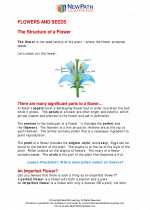 Flowers and seeds
Flowers and seeds  Activity Lesson
Activity Lesson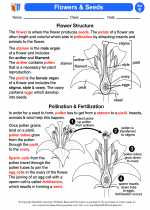 Flowers & Seeds
Flowers & Seeds  Worksheet/Answer key
Worksheet/Answer key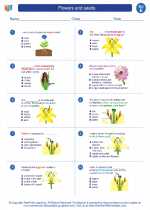 Flowers and seeds
Flowers and seeds  Worksheet/Answer key
Worksheet/Answer key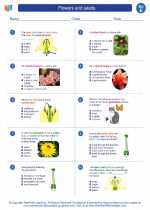 Flowers and seeds
Flowers and seeds  Worksheet/Answer key
Worksheet/Answer key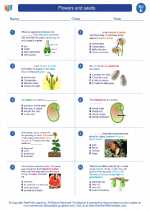 Flowers and seeds
Flowers and seeds  Worksheet/Answer key
Worksheet/Answer key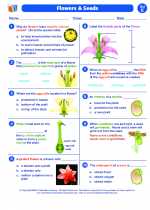 Flowers and seeds
Flowers and seeds  Vocabulary/Answer key
Vocabulary/Answer key Flowers and seeds
Flowers and seeds  Vocabulary/Answer key
Vocabulary/Answer key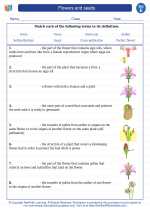 Flowers and seeds
Flowers and seeds 

 Activity Lesson
Activity Lesson
 Worksheet/Answer key
Worksheet/Answer key
 Worksheet/Answer key
Worksheet/Answer key
 Worksheet/Answer key
Worksheet/Answer key
 Worksheet/Answer key
Worksheet/Answer key
 Vocabulary/Answer key
Vocabulary/Answer key
 Vocabulary/Answer key
Vocabulary/Answer key

The resources above cover the following skills:
Life Science
All organisms have structures and systems with separate functions. Students can:
Develop and communicate an evidence-based scientific explanation of the role of different organs or structures that are important for an organism's survival - in both plants and animals